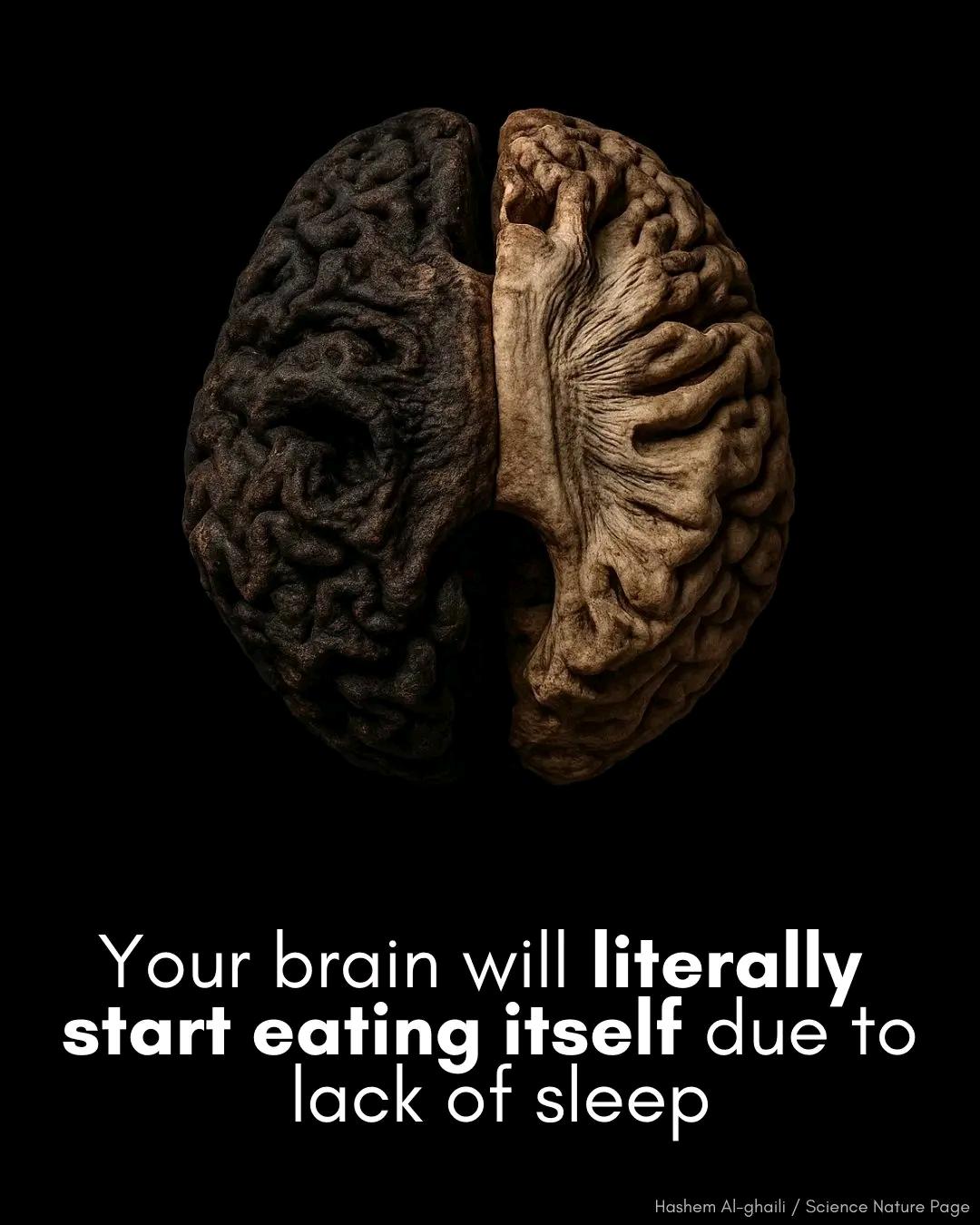Sleep-deprived? Your brain might be eating itself—literally.
When we don’t get enough sleep, our brain doesn’t just get tired—it starts to eat itself.
That’s the alarming takeaway from research in mice showing that chronic sleep deprivation triggers overactivity in glial cells, the brain’s internal clean-up crew.
Normally, these cells maintain brain health by clearing away damaged or unnecessary components.
But when sleep is lacking, a type of glial cell called an astrocyte becomes hyperactive, pruning not just damaged parts of neurons but healthy ones as well. In severely sleep-deprived mice, astrocytes began breaking down parts of synapses—critical connections between neurons—resulting in the destruction of up to 13% of brain cells.
This zombie-like self-cannibalism has wide-reaching implications, especially in understanding neurodegenerative diseases such as Alzheimer’s, where disrupted sleep and neuronal damage often go hand-in-hand. Scientists believe this overactive clean-up response could help explain the cognitive decline associated with chronic sleep deprivation. While further research is needed to confirm how this plays out in humans, the findings make one thing clear: consistent, quality sleep is not a luxury—it’s essential brain maintenance that protects against long-term damage.
Source: Science Museum of Virginia. "Question Your World: When Does the Brain Eat Itself?" (2018)
When we don’t get enough sleep, our brain doesn’t just get tired—it starts to eat itself.
That’s the alarming takeaway from research in mice showing that chronic sleep deprivation triggers overactivity in glial cells, the brain’s internal clean-up crew.
Normally, these cells maintain brain health by clearing away damaged or unnecessary components.
But when sleep is lacking, a type of glial cell called an astrocyte becomes hyperactive, pruning not just damaged parts of neurons but healthy ones as well. In severely sleep-deprived mice, astrocytes began breaking down parts of synapses—critical connections between neurons—resulting in the destruction of up to 13% of brain cells.
This zombie-like self-cannibalism has wide-reaching implications, especially in understanding neurodegenerative diseases such as Alzheimer’s, where disrupted sleep and neuronal damage often go hand-in-hand. Scientists believe this overactive clean-up response could help explain the cognitive decline associated with chronic sleep deprivation. While further research is needed to confirm how this plays out in humans, the findings make one thing clear: consistent, quality sleep is not a luxury—it’s essential brain maintenance that protects against long-term damage.
Source: Science Museum of Virginia. "Question Your World: When Does the Brain Eat Itself?" (2018)
Sleep-deprived? Your brain might be eating itself—literally.
When we don’t get enough sleep, our brain doesn’t just get tired—it starts to eat itself.
That’s the alarming takeaway from research in mice showing that chronic sleep deprivation triggers overactivity in glial cells, the brain’s internal clean-up crew.
Normally, these cells maintain brain health by clearing away damaged or unnecessary components.
But when sleep is lacking, a type of glial cell called an astrocyte becomes hyperactive, pruning not just damaged parts of neurons but healthy ones as well. In severely sleep-deprived mice, astrocytes began breaking down parts of synapses—critical connections between neurons—resulting in the destruction of up to 13% of brain cells.
This zombie-like self-cannibalism has wide-reaching implications, especially in understanding neurodegenerative diseases such as Alzheimer’s, where disrupted sleep and neuronal damage often go hand-in-hand. Scientists believe this overactive clean-up response could help explain the cognitive decline associated with chronic sleep deprivation. While further research is needed to confirm how this plays out in humans, the findings make one thing clear: consistent, quality sleep is not a luxury—it’s essential brain maintenance that protects against long-term damage.
Source: Science Museum of Virginia. "Question Your World: When Does the Brain Eat Itself?" (2018)
0 Kommentare
0 Geteilt
373 Ansichten



